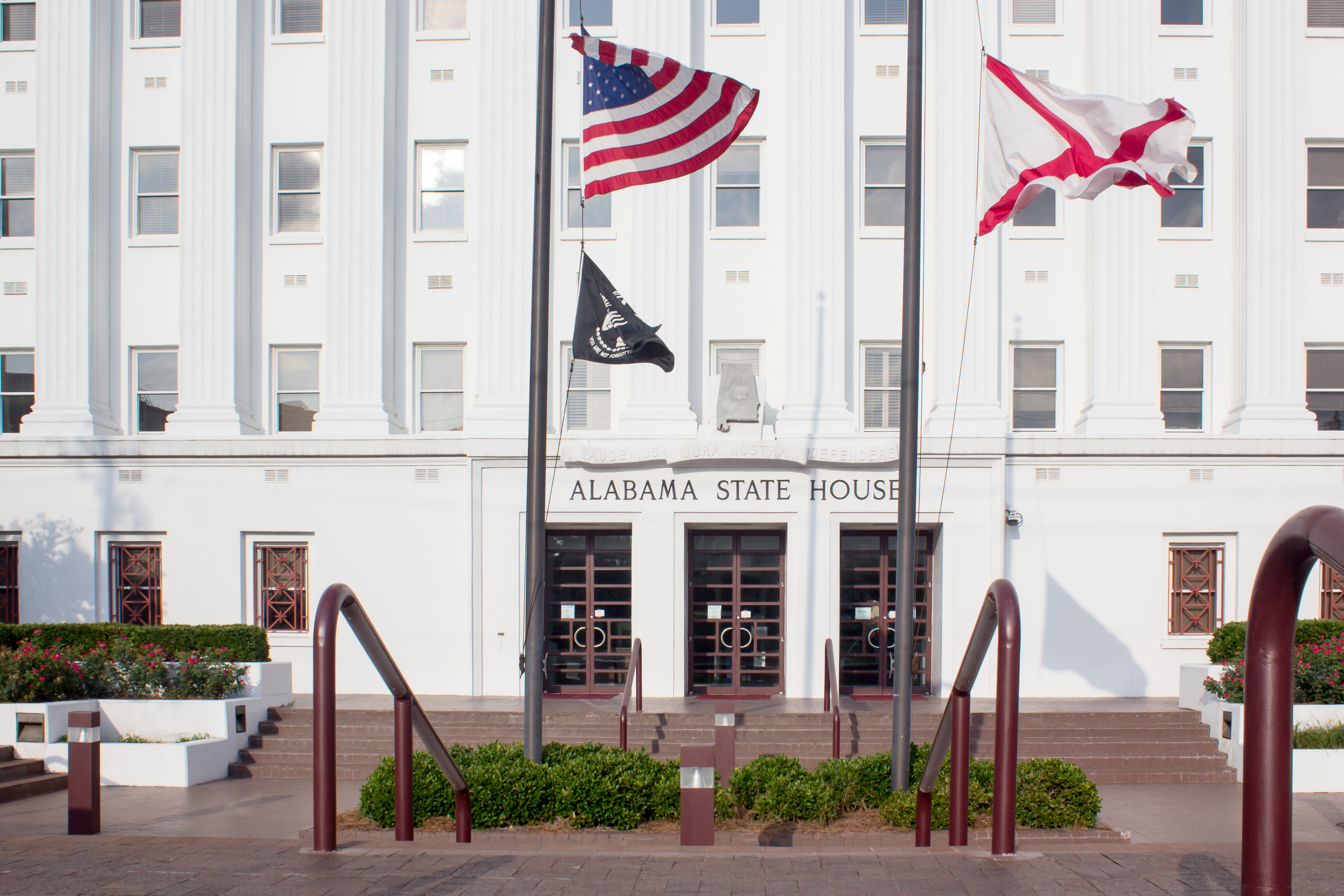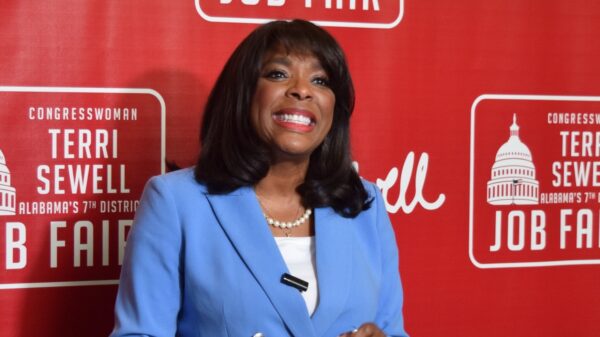As the 2023 Legislative Session comes to a close, it goes out with a mix of emotions. Unlike sessions of the recent past, there was just one piece of legislation that passed – a ban on transgender athletes in college – that drew national scrutiny and appears destined for federal litigation.
But even that copycat legislation that simply piggybacked on similar bills from other states paled in comparison to the off-the-wall, mean-spirited bills that have occupied time and headlines in the past.
In fact, it could be that the 2023 session will be most remembered for the decent bills that did pass and the truly terrible bills that failed to gain final approval.
Regardless of how you feel, here are APR’s Top 5 best and worst bills of the 2023 session.
BEST BILLS
- SB275 – Cutting the grocery tax: It’s been talked about for three decades – cutting Alabama’s tax on food. It’s not totally gone, but a number of Alabama lawmakers from both sides of the aisle, including Lt. Gov. Will Ainsworth, Reps. Anthony Daniels and Andrew Jones and Sen. Sam Givhan, came together to slice the tax in half. And Ainsworth has stated publicly that he wants to eliminate the entire tax within the next few years. As it is, the half that was cut represented the largest tax cut in state history, and the only major tax in recent memory to be deemed a progressive tax cut.
- HB217 – Cutting the overtime tax: An unprecedented tax cut for working Alabamians, Daniels’ novel legislation – which is starting to spur similar legislation in other states – eliminates Alabama’s 5-percent occupational tax on overtime pay. After Sen. Arthur Orr, who had held the bill up for weeks, attached a last-minute amendment capping the tax break at just $25 million, Gov. Kay Ivey came back with an amendment of her own. Her executive amendment removed the cap, giving hard working Alabamians a 5-percent pay raise on their overtime hours.
- The Game Plan Bills: The four-bill package of legislation known as “Alabama’s Game Plan” sailed through the legislature primarily because it was well done, comprehensive and necessary legislation that managed to expand business development opportunities while simultaneously expanding transparency and accountability. The bipartisan legislation also created new opportunities for some of Alabama’s most depressed and rural areas, finally devoting state resources to some places that needed them the most.
- HB229 – The Second Chance Bill: It’s the best bill that didn’t pass, and maybe the best bill anyway. HB229, sponsored by Rep. Chris England, would have given new opportunities for incarcerated people over the age of 50 and who have served at least 15 years in prison already. The legislation, which stalled in the senate, would also have saved the state potentially hundreds of millions of dollars in healthcare services that currently is expended on older incarcerated people. And it would have freed up a lot of space in Alabama’s overcrowded prisons. But as is often the case with the state’s prisons, the best option was declined.
- HB356 – The Noah Cade Act: It is rare in the Alabama Legislature to find overwhelming bipartisan support for a bill that has anything to do with law enforcement, and particularly so when it comes to the training of law enforcement. But the Noah Cade Act, sponsored by Rep. Leigh Hulsey, does just that – it requires more training for law enforcement officers in dealing with people with “invisible disabilities,” such as autism. But the bill does not require police departments to track outcomes related to incidents involving police and people with invisible disabilities. Hulsey’s son, Noah Cade, who is on the autism spectrum, was the inspiration for the bill. It passed both houses unanimously.
WORST BILLS
- HB454 – The death penalty for abortions bill: Rep. Ernie Yarbrough wasn’t exactly a popular new lawmaker, primarily because he jumped on the pandering-legislation train early and often. But his most controversial bill – one that undermined ALGOP talking points and irked even his fellow Republicans – was a bill that would have made it possible for the state to impose the death penalty on any woman who received an abortion. To show how unpopular the legislation was, despite having four co-sponsors, it didn’t even merit a committee assignment from Republican leadership and died with barely a whimper.
- HB261 – The Transgender athletes bill: Despite the fact that transgender athletes make up less than 1 percent of all athletes in NCAA competition, and despite the fact that there have been fewer than 40 instances in which a transgender athlete has competed in an NCAA sanctioned event (out of nearly 500,000 NCAA athletes), the Alabama legislature felt this was a pressing need to address. The bill bans transgender athletes from competing on teams at Alabama’s public colleges. The NCAA already has measures in place – such as blood testing for hormone and testosterone levels – that ensure the safety and fairness of sports, but that was apparently not enough for Alabama lawmakers and Gov. Kay Ivey, who signed the bill into law.
- SB261 – The anti-ESG bill: In one of the strangest anti-free market moves in memory, the state of Alabama is now prohibited from entering into contracts with businesses that have made commitments to only work with companies that are socially conscious and/or don’t contribute to climate change. ESG stands for “environmental, social and governance standards,” which is a set of standards that businesses – including some major corporations around the world and several in Alabama – have adopted to determine the companies they do business with. Essentially, the legislation was a gift to fossil fuel, tobacco and other companies that fail to live up to those standards. And it was a major blow to the free market.
- HB209 – The absentee ballot assistance criminalization bill: Not satisfied with only taking down the free market, ALGOP lawmakers, led by Rep. Jamie Kiel, also went after the first amendment and free speech. Kiel’s bill would have criminalized the mere act of assisting a neighbor in obtaining an absentee ballot or giving aid to an elderly person struggling to comprehend the ballot or get it mailed. There was little chance that it could have withstood a legal action, because the legislation essentially criminalized free speech. Thankfully, it died in the senate without a vote.
- HB7 – The divisive concepts bill: Call it anti-CRT by a more palatable name. Rep. Ed Oliver’s attempt to subvert the teaching of an accurate American and Alabama history failed to pass, but it got plenty of attention and an embarrassing amount of support. The bill would have banned the teaching of “divisive topics” related to religion, race or sex. There was no real definition of the term “divisive topics” and the bill offered little to no guidance for educators on what might be allowed. In the end, lawmakers decided to dump the bad bill.





















































